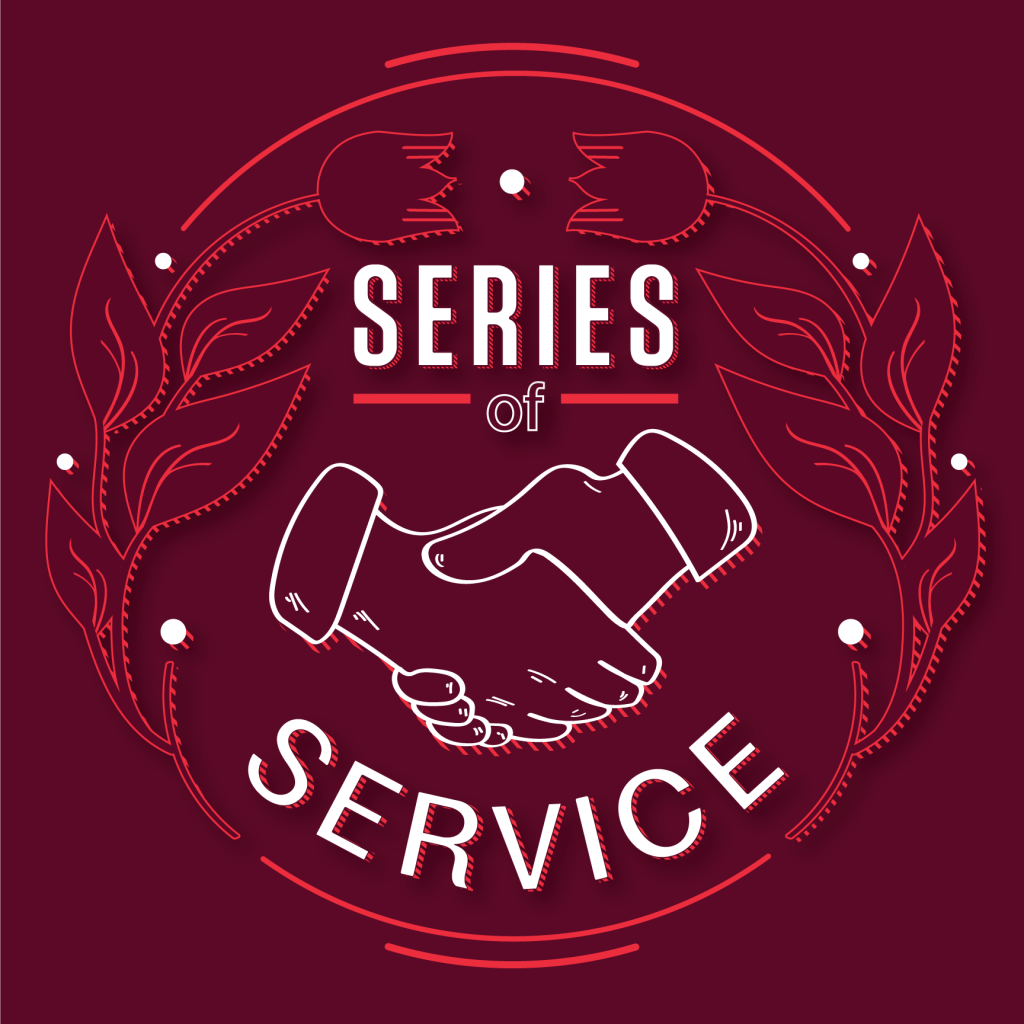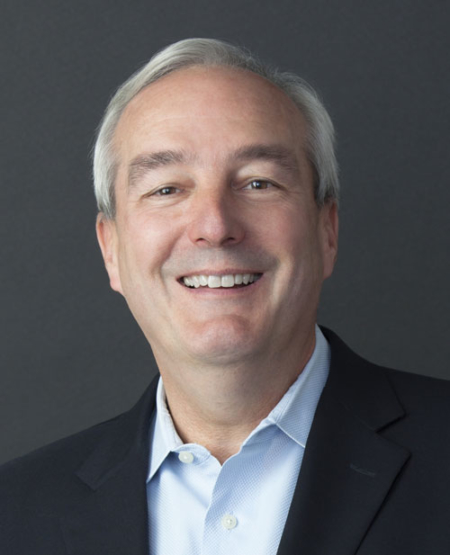Ray Rothrock ’77: The service-hearted Aggie C.E.O.
This Fort Worth native uses his leadership talents and Aggie Values to save us all from cyber-attacks one business at a time.

By Rachel Knight ‘18
Editor’s Note: The following is a Series of Service feature from the College of Liberal Arts.
The series highlights individuals who give generously of their time and resources as members of either the Liberal Arts Development Council or the Liberal Arts Advisory Council. Life-long learning and humanities research that matters at Texas A&M University would not be possible without this support.
Ray Rothrock’s career path has been anything but conventional. He has an undergraduate degree in nuclear engineering from Texas A&M University, a master’s degree in nuclear engineering from the Massachusetts Institute of Technology (MIT), and a business degree from Harvard Business School. However, it’s Rothrock’s liberal arts classes at Texas A&M that have proved most useful throughout his career.

Ray Rothrock is an Aggie with a passion for service. He is on a mission to save the world from cyber attacks one business at a time as the CEO of RedSeal.
Today, he is the CEO of RedSeal, a company he says is saving the world from cyber-attacks one business at a time. In contrast, his first three jobs after graduating from MIT were in engineering. They all ended abruptly due to unrest in the nuclear energy industry. During this time, he’d taken an interest in Apple computers and became a self-taught computer expert.
His first job outside of engineering was in a marketing position with Sun Microsystems. After the company became a success in every way imaginable, Rothrock earned his business degree. He was then hired as a venture capitalist by Venrock, the Rockefeller family venture capital firm in New York City. Rothrock worked at Venrock for 25 years with great success. Though he tried to retire, RedSeal, a company Rothrock had backed during his time at Venrock, got into some trouble. In 2014 he was asked to help get the company back on its feet as CEO, which he has done successfully. He continues to lead there because he believes strongly in RedSeal’s mission to protect our way of life from cyber-attacks.
We chatted on the phone with Rothrock to learn more about his story, his time at Texas A&M, and the legacy he plans to leave. This interview, which was condensed and edited for clarity, may awe and inspire you.
Tell me about your childhood.
I grew up in Fort Worth, Texas. My parents were both salt-of-the-earth, Depression-era children. My dad served in World War II including D-Day. He and my mother got married after the war and started a family like millions of other Americans. I was born into a two-bedroom, wood-frame house, and life was “up and to the right,” as I like to say.
The one moment I remember like it was yesterday is from our time in that wood-frame house. I was in grade school, and Dad came home from work one day and announced that he had been promoted to supervisor. Most importantly to my dad, his new position meant my parents could afford for me and my brother to go to college. My parents were both from large families and were unable to attend college. Of all the cousins in my generation, only four out of more than 20 went to college — so it was a pretty big deal.
How have your adolescent years shaped your interests today?
When I was 14, I got the atomic energy merit badge in the Boy Scouts. It was a magical event. A research scientist from Oak Ridge, Tennessee, the home of the big nuclear laboratory in those days, had come to Fort Worth. Many scouts worked through the requirements to get the atomic energy merit badge, and it was very inspirational.
For my high school science project, I wrote a report and built a model of a fusion reactor, which was still a gleam in a lot of eyes in those days. I actually won an award from the Texas Electric Service Company at the city science fair in Fort Worth. With that award, I got a letter from the CEO of Texas Electric, who was an Aggie. That letter was my introduction to the nuclear engineering department at Texas A&M.
How did you decide to study at Texas A&M?
College visits were very different in those days. My dad took a week off from work over the Fourth of July weekend. I had been accepted at Texas Christian University in Fort Worth, at Baylor University in Waco, and at Texas A&M. We went on the proverbial road trip.
We stopped by TCU, and they rolled out the red carpet because I was a valedictorian. Then we drove on down to Waco. I’m a big musician, so I had a four-year offer to study in the music program at Baylor on a scholarship. Then we turned left in Waco and went south to College Station, which was the end of the line the next day.
We figured out where the nuclear engineering office was, presented the letter I received when I won the high school science fair, and Dr. Cochran – who was the department head – came and greeted us. He then sent us off to another professor, who called over to the registrar, pulled my records, and saw that letter. He and Cochran had a conversation, and when he came back in, he said to my dad, “Mr. Rothrock, I recommend that your son start summer school immediately and come to Texas A&M.” We were flattered by that. My dad and I stepped out, came back in, and agreed. The professor picked up the phone again, and I was admitted. I started school that summer of 1973.
Though you graduated from Texas A&M with a degree in nuclear engineering, you are a major supporter of the College of Liberal Arts. Why do you choose to support the liberal arts at Texas A&M University?
When I was at Texas A&M, J. Wayne Stark was the director of the Memorial Student Center. The Memorial Student Center in those days was the center of all student activities except the Corp activities. It was Stark who “encouraged” me to take more liberal arts credits. If you wanted to be on his team at the Memorial Student Center, you took the courses he suggested. It paid off very handsomely, and I am so glad that I took the liberal arts courses he recommended. It expanded the world for me.
Here I am now at 64 years old. What do I do every day? I lead people, I manage resources, I hire people, sometimes I have to fire people, I deal with the tragedies in people’s lives, I prioritize. Having all of those courses under my belt really paid off. It just made me a better person.
What was your favorite class in college?
I had different favorites for different reasons. Calculus was one favorite. Sister Ellis, a nun and grad student, was my teacher. She was awesome. When I went to her and said I want to do more than what’s in the book, she said, “Let’s do it!” She’d give me assignments and then I’d work them on my own.
My philosophy course was also pretty interesting, because we tore the world apart. We took language and tore it down to understand arguments, persuasion, debates, and how you could watch a television commercial and see if the logic of the television commercial paid off. My professor in this course, Dr. Davenport, was the head of the philosophy department at the time. He was also very engaging and pro-student. There wasn’t enough time in the day for him to do his work, because he was always helping students. He was very inspirational.
What role, if any, have your liberal arts classes played in your career success so far?
This sounds corny, but really it’s opened my eyes to non-technical things that mattered. Business school tied it all together. Of course, I had to take accounting and other technical classes (you have to do that), but I also got to take leadership, presentation, and strategy. These were important courses, and all in the broad liberal arts category.
How are you saving the world at RedSeal?
We are going to save the world with our technology. Back when Dad landed at D-Day, the US was in a fight for the world, and our way of life. There is some parallel to our cyber security situation today in that we are fighting for our lives — for our way of life and our laws and our respect. It’s very scary, and we have not yet won this cyber war. But we will. It’s a big deal.
It’s about doing something good for the world. It’s about making society better and making us all safer.
In addition to your undergraduate degree from Texas A&M, you also have degrees from MIT and Harvard Business School. What makes Texas A&M stand out as a place you want to support?
State schools, especially land grant colleges like Texas A&M, play a huge role in offering a higher education path for so many people from all walks of life. Texas A&M took me from a neighborhood in Fort Worth and offered a gateway to the rest of my career.
I’m a huge believer in education. Thomas Jefferson had it right. Democracy succeeds when the populous is educated, and state schools, like Texas A&M and others, are gateways to educating people beyond reading, writing, and arithmetic. That’s a big deal.
What books are on your nightstand right now?
I just bought Energy by Richard Roads, who’s a Pulitzer Prize winner. He wrote Making the Atomic Bomb. He’s a very compelling guy.
There is another book on my bedside table called Chasing the Moon. It’s about the 60s and the pursuit of the moon in light of the Vietnam War, the civil rights movement, and all of the other things that were going on. I was actually a producer of a movie about American experiences called Chasing the Moon that premiered in July on Public Broadcasting.
Another called The Fifth Domain is on my bedside table right now, though I just finished it. That one is by Richard Clark. He is one of my all-time favorite purveyors of cyber security.
What do you want your legacy to be at Texas A&M University?
Texas A&M is really great for the state of Texas, but it’s missing opportunities to be great for the world. That transition is starting to happen, even now, but more is needed.
I sincerely believe that because of the values that are taught and the leadership that’s amplified at Texas A&M, the world would be better off if a bunch of us who left Texas could get other Aggies to come “outside” the state of Texas. We now have a student body of 60,000 plus students. We have the relationships. We have the recognition. I don’t mean to change anything that goes on in College Station, but to get the kids to think that there’s more to the world than the neighborhood they grew up in, because that’s what happened to me. Thank you, Mr. Stark.
